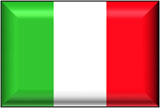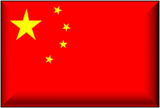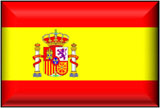West
East Corporation
中国的合作伙伴 : 投资中国,在中国做生意,在中国咨询,使中小型企业国际化
Tuscan food products conquer China
October, 2013According to statistics on foreign trade, the value of exports of agri-food products from Tuscany to China would have recorded an increase of 37%, after the success already represented in the previous months. This result is particularly due to olive oil, pasta and wine.
The ISTAT data on foreign trade relative to January-June 2013 testimony the success of Tuscan food products in China. The statistics, analyzed in a study conducted by the Italian Association Coldiretti, have highlighted how the export has recorded a 37% increase in the Chinese market; the most exported products include olive oil, pasta and wine. The positive results are inserted in the midst of a collaborative relationship between the Tuscany Region and the Chinese juggernaut that is increasingly stronger. Among the facts that confirm this, we must mention the relations between Tuscany and the Chinese province of Anhui, whose project "Principles of Italy" (with the entrepreneur Xu Giulini) can be considered the sign. It is an exhibition and commercial debuting hosting, in which right now the products of Italian companies are hosted in an exhibition area of 40 thousand square meters.
“The success of Italian business in China requires, more than is required elsewhere, the development of a strong national system who must learn to coordinate, to work together, to reconcile finance, manufacturing capacity and management know-how and above all be able to accept challenges brought by the competition”.
In Prato 8Italy) there is the headquarter that keeps relations and contacts with Italian companies (www.agichina24.it). The project is part of a report for which last July was signed, between the parties, a letter of intent for institutional, cultural, economic and health collaboration. The opportunities for Tuscan excellence thus appear to be increasing. The argument can be extended to the Italian level, so the dynamics of the market appears constantly growing. The Italian food products exported to China note, however, values still marginal compared to the consumption potential of the country. This makes it necessary to define a targeted strategy to penetrate, the market, built to overcome the obstacles of commercial and culture nature that remain up to date.
关于我们
由于我们拥有专业人士和广泛的中国网,也叫作 " 关系 ",我们咨询公司能为打算投资中国的客户提供全方位的支持。而这(尤其是中小型企业)会使公司在中国做生意时的危险和失望减到最少。





